Hail, Caesar!: 5 movies to watch before the Coen brothers' latest
A handy guide to the films parodied in the Coens' spoof of the Golden Age of Hollywood
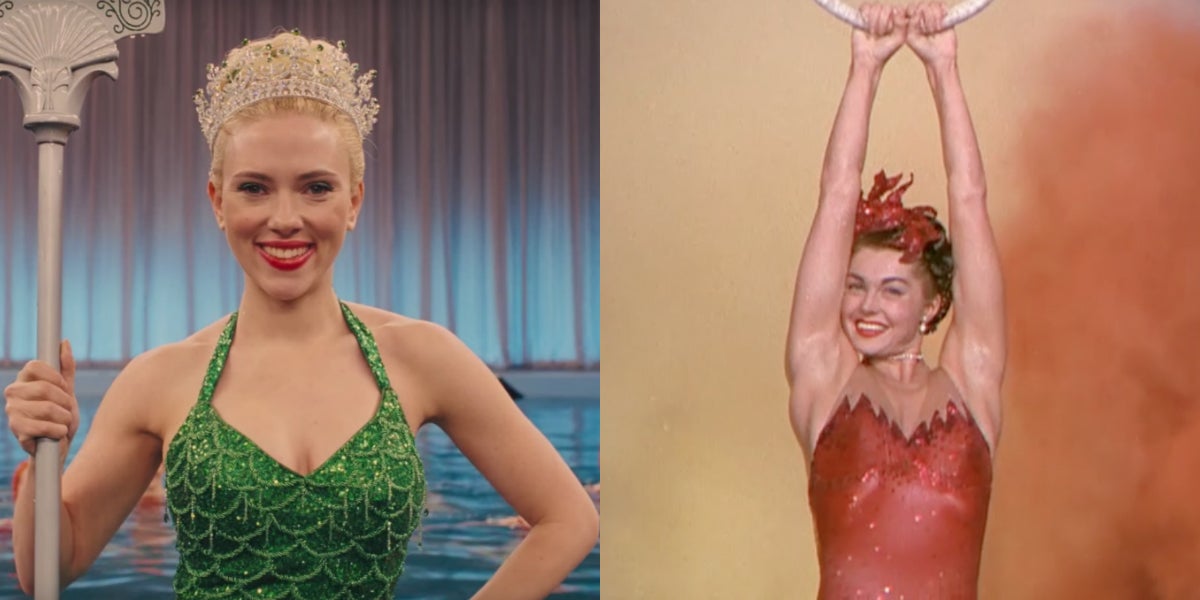
Your support helps us to tell the story
From reproductive rights to climate change to Big Tech, The Independent is on the ground when the story is developing. Whether it's investigating the financials of Elon Musk's pro-Trump PAC or producing our latest documentary, 'The A Word', which shines a light on the American women fighting for reproductive rights, we know how important it is to parse out the facts from the messaging.
At such a critical moment in US history, we need reporters on the ground. Your donation allows us to keep sending journalists to speak to both sides of the story.
The Independent is trusted by Americans across the entire political spectrum. And unlike many other quality news outlets, we choose not to lock Americans out of our reporting and analysis with paywalls. We believe quality journalism should be available to everyone, paid for by those who can afford it.
Your support makes all the difference.The Coens only ever parody with love; they tease because they arrive from a place of such intimacy and adoration that those flaws and stupidities are perceived only as a single thread in an entire, magnificent tapestry. From Southern music to Jewish traditions; now the Coens turn their gaze to all the bombast and totalitarianism of Hollywood's studio system with Hail, Ceasar!.
An undoubtable treat for fans of Old Hollywood, rife as it is with detailed references and nods to the real moviemaking magic of the Golden Age. Josh Brolin's Hollywood fixer Eddie Mannix did, in reality, cover up numerous scandals from the mid-20s to early-60s; Tilda Swinton's twin sisters Thora and Thessaly Thacker take their basis from rival columnists Heda Hopper and Louella Parsons; the mysterious kidnappers, known only as The Future, spoof McCarthy-era suspicions that Communist sympathy was rife amongst Hollywood's screenwriting community.
Furthermore, Hail, Caesar!'s films-with-the-film mark a wonderful riff on some of the great classics of the age. So, in preparation for such delights, here's five movies that'll set you up perfectly for all the Coens' digs and references.
Ben Hur (1959)
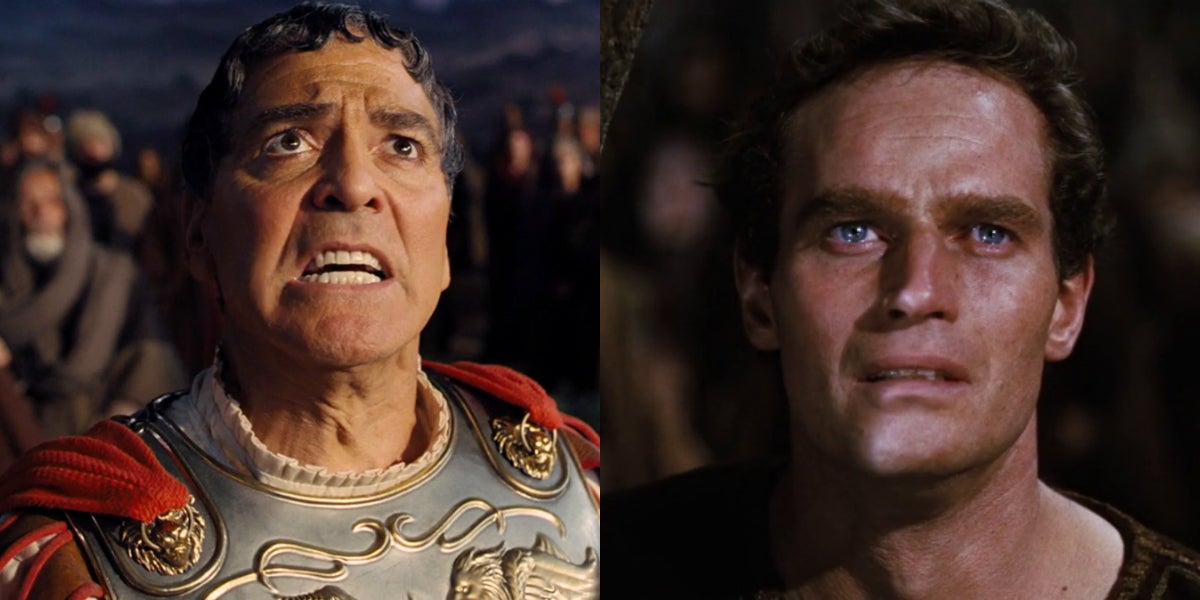
Hail, Caesar! happens to be the name of the motion picture Baird Whitlock (George Clooney) is in the midst of filming when he's kidnapped from its set; an enthusiastic homage to the whole host of biblical epics Hollywood busied itself with during the '50s and early '60s.
Many featured film's most rugged stars playing wearied Roman commanders converted to Christianity when they fortuitously cross paths with the Son of God; Richard Burton played in the role The Robe, and Robert Taylor the same in Quo Vadis.
However, a key Hail, Caesar! scene we're privy to in the Coens' film seems ripped straight from Ben Hur's celluloid; in which its enslaved titular character (Charlton Heston) is given water by Jesus, whose face is never shown, as Romans stand back in horror and astonishment.

There's only one Hollywood dame Scarlett Johansson's aquatic queen is meant to represent: the Million Dollar Mermaid herself, Esther Williams. A record-breaking swimmer in her youth, Williams was soon snapped up by MGM for its lovingly-termed 'aquamusicals', which featured epic displays of synchronized swimming and diving.
The scene we see in Hail, Caesar! most closely resembles one of her most famous sequences, taken from the film Million Dollar Mermaid; a biopic of Australian swimmer, and synchronised swimming pioneer, Annette Kellerman.
Private Lives (1931)
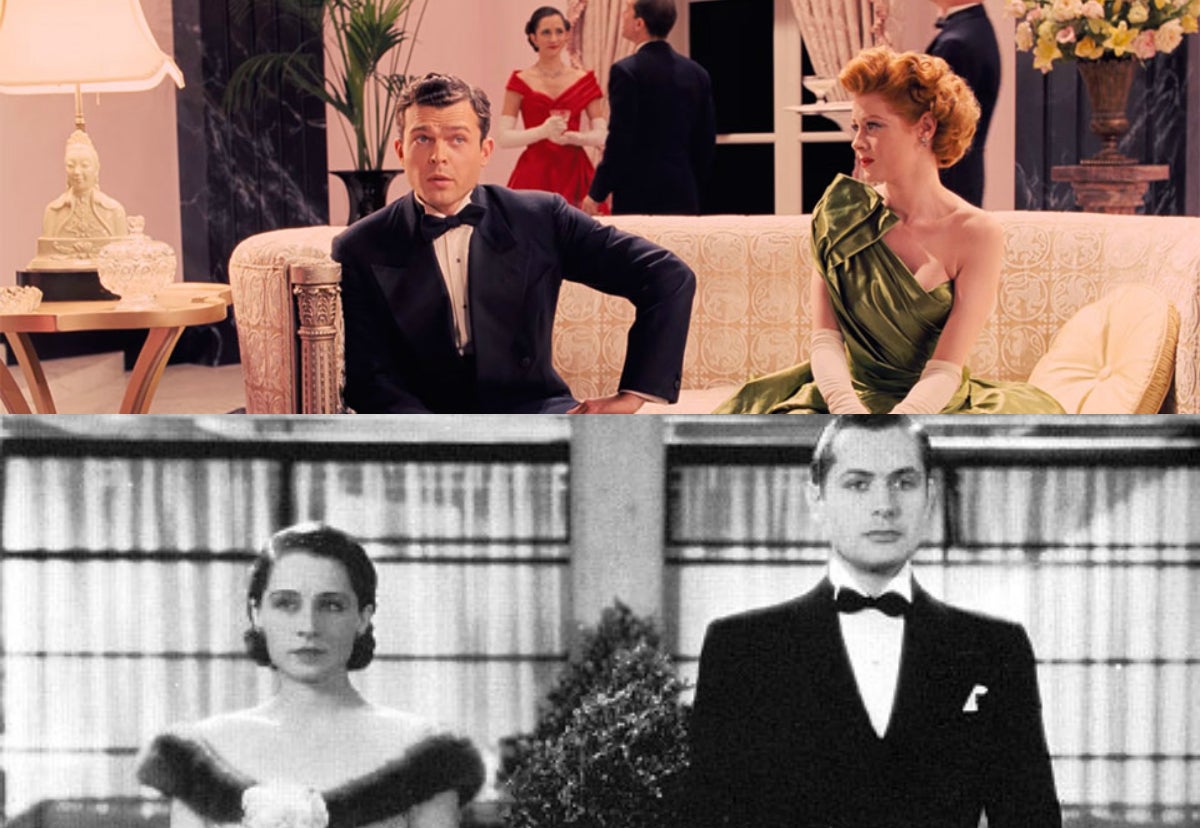
The reference point for Laurence Laurentz (Ralph Fiennes)'s high-society drama seems a little more obscure; odd, since the other parodies here seem so directly ripped from specific films. Merrily We Dance essentially comes off as an amalgamation of older, refined offerings from the 1930s; a reference to the film adapting a highly successful Broadway production suggests it may be a nod to the work of Noël Coward.

Watch Apple TV+ free for 7 days
New subscribers only. £8.99/mo. after free trial. Plan auto-renews until cancelled

Watch Apple TV+ free for 7 days
New subscribers only. £8.99/mo. after free trial. Plan auto-renews until cancelled
1931 saw the first cinematic adaptations of one of Coward's most well-known plays, Private Lives. Starring Norma Shearer, the playwright deemed the film version only "passable", yet its comedy of manners pairing a divorced couple accidentally holidaying at the same resort nicely echoes Merrily We Dance's own romantic mix-ups.
Coward originally voiced concerns that Shearer would be incapable of handling the play's sophisticated dialogue; to which she replied, "I don't care what he thinks - he thinks in theater terms - I think in film terms. It doesn't seem to occur to Mr. Coward that we both may turn out to be right!"
In turn, Hail, Caesar! sees Laurentz exasperated to discover Western film star Hobie Doyle cast as Merrily We Dance's romantic lead; resulting in the film's standout comedic bit, in which Laurentz tries in vain to teach Doyle the elegance of the Mid-Atlantic accent.
Anchors Aweigh (1945)
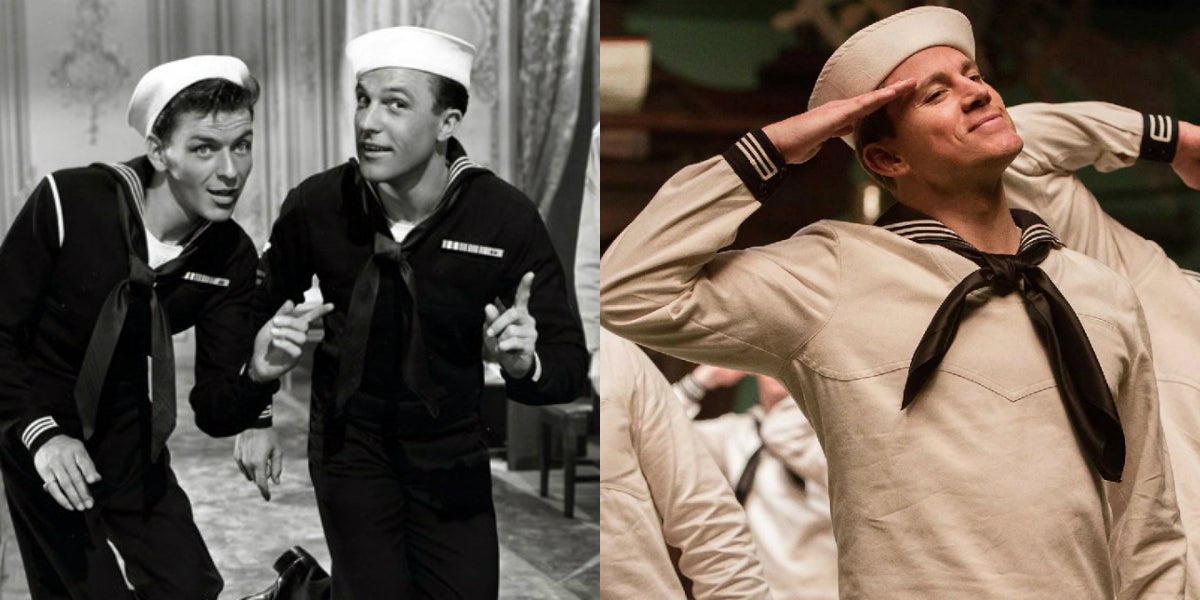
Hail, Caesar!'s musical number 'No Dames' taps into the brief history of nautically-themed musicals which populated cinema's Golden Age; particularly the fairly identically-premised On the Town and Anchors Aweigh, which followed sailors let loose on shore leave.
Both those films happened to star Gene Kelly, whose combination of unflappable charm and incredible athleticism transformed him into one of film's most iconic performers. Today, with our tragic drought of tap dancing, it's Magic Mike star Channing Tatum who comes closest to capturing the spirited presence Kelly brought to screen.
With that combination of charismatic grin, soulful good looks, and jaw-dropping moves; it won't be long before you're begging for a Tatum-starring take on An American in Paris.
The Arizona Kid (1946)
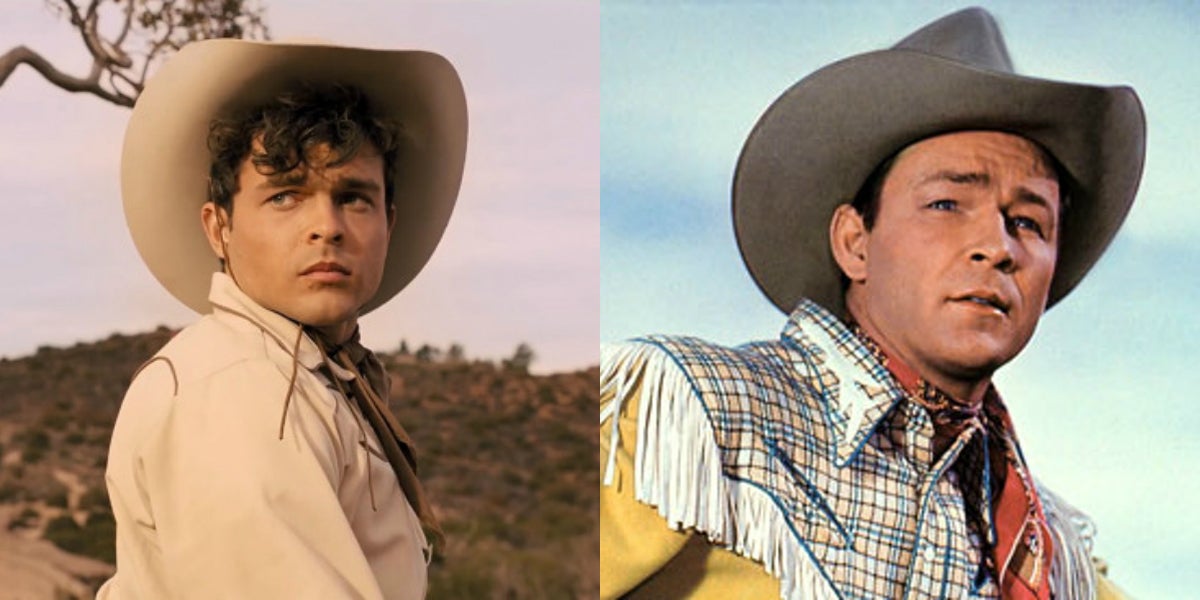
Though Hobie Doyle (Alden Ehrenreich)'s disastrous transition from cowboy to thespian lacks much of a real-life parallel, his character does distinctly nod back to the "singing cowboy" archetype of '30s and 40's westerns.
So far removed from the grit of Clint Eastwood and John Wayne, these pure-hearted, clean-shaven, white-hatted heroes would much rather bust out an old country classic on their guitar than engage in a Mexican standoff.
Most famed amongst the "singing cowboys" were Gene Autry and Roy Rogers; two actors so recognisable, and beloved by their fans, their characters were largely just named after themselves. In Hail, Caesar!, Hobie Doyle sings one of Rogers' own songs, 'Lazy Old Moon', as featured in the movie The Arizona Kid.
Join our commenting forum
Join thought-provoking conversations, follow other Independent readers and see their replies
Comments